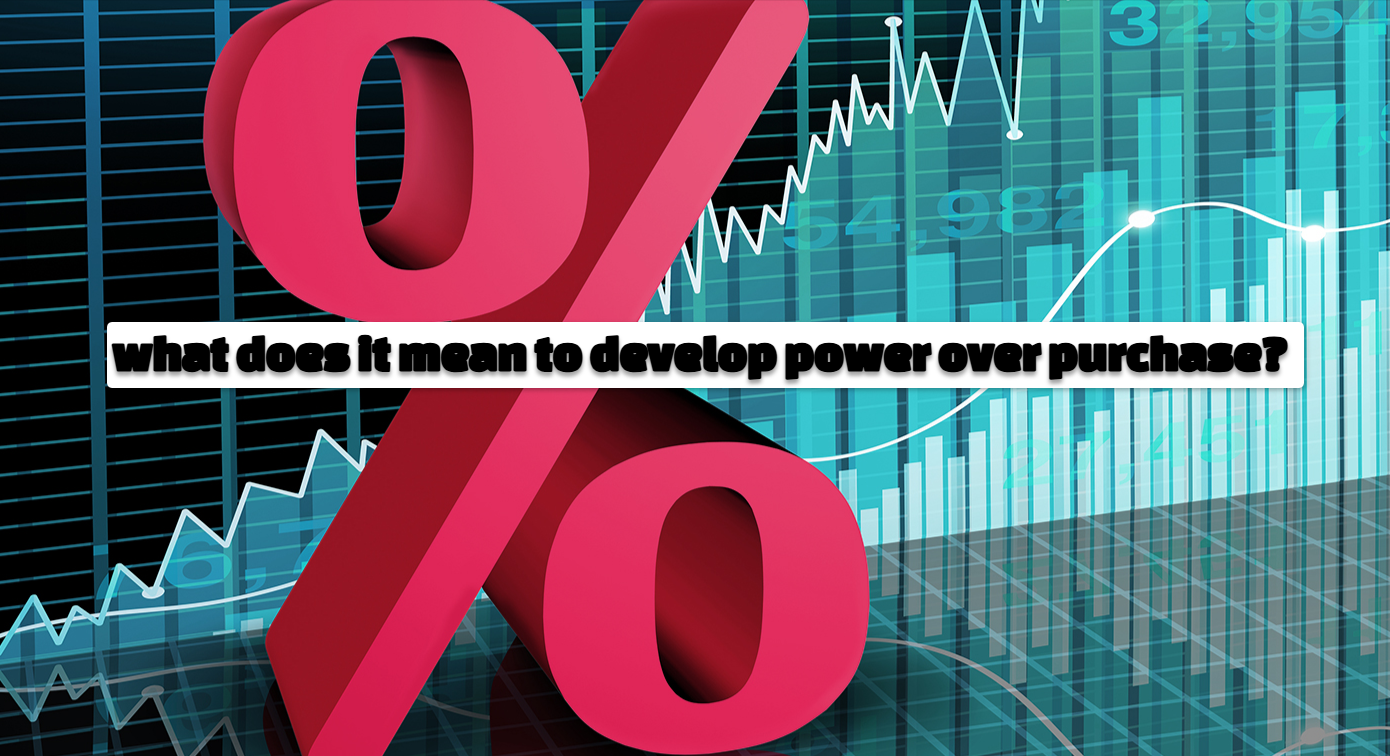Intro: what does it mean to develop power over purchase?
- You’re not able to defend yourself when it comes to the impulse to buy.
- It is possible to make decisions quickly when it comes to buying products.
- You can take a moment to think about your motives before you buy something.
- You are able to buy whatever you like and you are able to do so.
The process of developing “power over purchase” means taking control of your spending habits and shifting away from buying impulsively and towards thoughtful making decisions. It involves understanding your motives and the long-term benefits of a purchase and making educated choices. It’s about being aware and resisting the temptation to buy just because you could.
This notion is closely linked to purchasing power that is the worth you can get from your savings in relation to the things it can buy. Knowing the way that the effects of inflation as well as other aspects influence your purchasing power is vital to make informed financial choices. Follow this guide until the very end.
Understanding Purchasing Power: The Value of Your Money
- Definition:
- Power of purchase is the value of items and services that you can purchase with an amount of currency.
- It’s a measurement of the worth of your money.
- Inflation’s Impact:
- Inflation reduces the purchasing power of your money which means that your money will buy less in the long run.
- Prices are rising, which reduces the range of items you can buy.
- Economic Indicators:
- The Consumer Price Index (CPI) is an important indicator of the purchasing power of the U.S.
- It monitors changes in price of consumer products and services.
- Global Connections:
- Globalization links currencies, which makes buying power protection for the entire world crucial.
The Erosion of Purchasing Power: Inflation and Economic Factors
- Inflation’s Role:
- Inflation directly affects the ability of you to purchase products and services.
- It can increase prices of life, and can cause economic instability.
- Historical Examples:
- Hyperinflation in Germany following WWI caused a decline in German marks. German Mark’s buying power.
- The 2008 financial crisis revealed the negative effects of financial instability on buying power.
- Government Policies:
- Central banks modify interest rates and establish policies to preserve the purchasing power of their customers.
- Quantitative easing is a prime example of a policy that is used to boost the economy.
- Investment Considerations:
- Investors and retirees must safeguard their investment from buying power-related risks.
- Commodities and TIPS investments can reduce the impact of inflation.
Developing Mindful Spending Habits: Gaining Control
- Slowing Down:
- “Power over purchase” means making sure you think about your motives before making a purchase.
- It’s about avoiding impulse buys and making smart choices.
- Considering Satisfaction:
- Assess whether a purchase can really bring you lasting satisfaction.
- Prioritize needs over wanting to satisfy.
- Informed Decisions:
- Make your purchases based on the available details and beware of regret.
- Compare prices and research products.
- Budgeting:
- Setting and sticking to budgets is an important element of having control over spending.
Differentiating Between Impulsive and Informed Buying:
- Impulsive Buying (Option A & D):
- The characteristics of impulse buying are an inability to think about the purchase and instant gratification.
- This often results in the feeling of regret and financial burden.
- Option A is a description of an absence of control. Option D, describes uncontrolled spending.
- Quick Decisions (Option B):
- Making quick decisions doesn’t necessarily mean impulsive buying.
- It can be effective in the context of previous research and the planning.
- Thoughtful Motives (Option C):
- “Power over purchase” aligns with Option C, which emphasizes an intelligent motive.
- It’s about assessing the long-term implications of purchases.
- The Importance of Delaying Gratification:
- The ability to delay the gratification of purchases is an essential part of learning to develop power over purchases.
Correct Option and Rationale: Thoughtful Motives
- Correct Option:
- The most effective choice is C: You’re in a position to slow down and consider your motives prior to buying something.
- Rationale:
- “Power over purchase” is about controlling the way you spend your money.
- It requires being aware about satisfaction, taking into account the best way to do it and making informed choices.
- This is directly related directly to your ability to take a step back and think about an purchase.
- The options A, B, and D don’t represent the notion of ownership over the purchase.
Conclusion: What exactly does mean by developing the power of purchase?
The ability to develop “power over purchase” is an essential life skill that helps promote the health of your finances and mindful consumption. By gaining an understanding of the purchasing power and establishing a shrewd spending style that allow people to make informed choices and avoid the dangers of buying impulses.
FAQs:
- What is buying power?
It’s the total amount of goods and services you can purchase. - How can inflation affect purchasing power?
It lowers purchasing power. - What exactly does “power over purchase” mean?
It is about making well informed purchasing decision. - What is the CPI?
The Consumer Price Index measures changes in the prices of consumer goods. - What exactly is an impulse purchase?
Making a purchase without thought usually results in regret.











